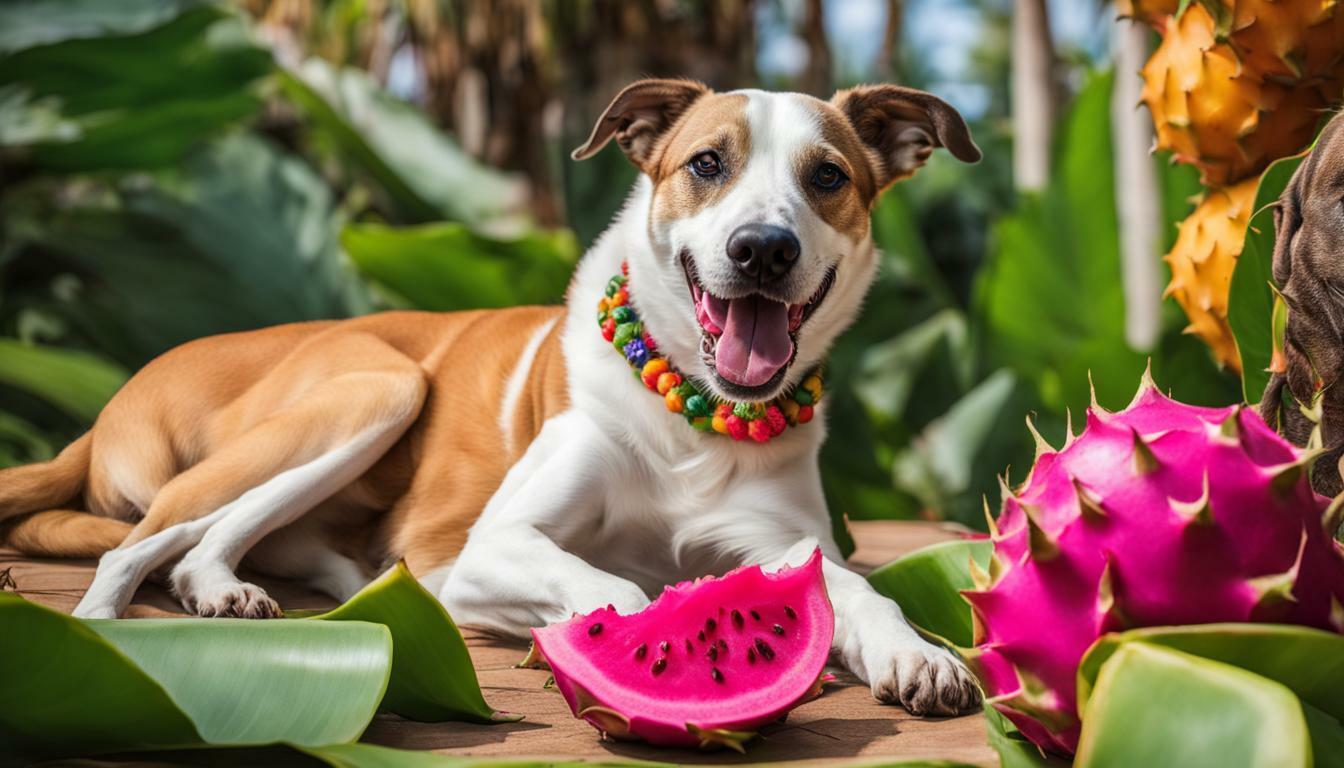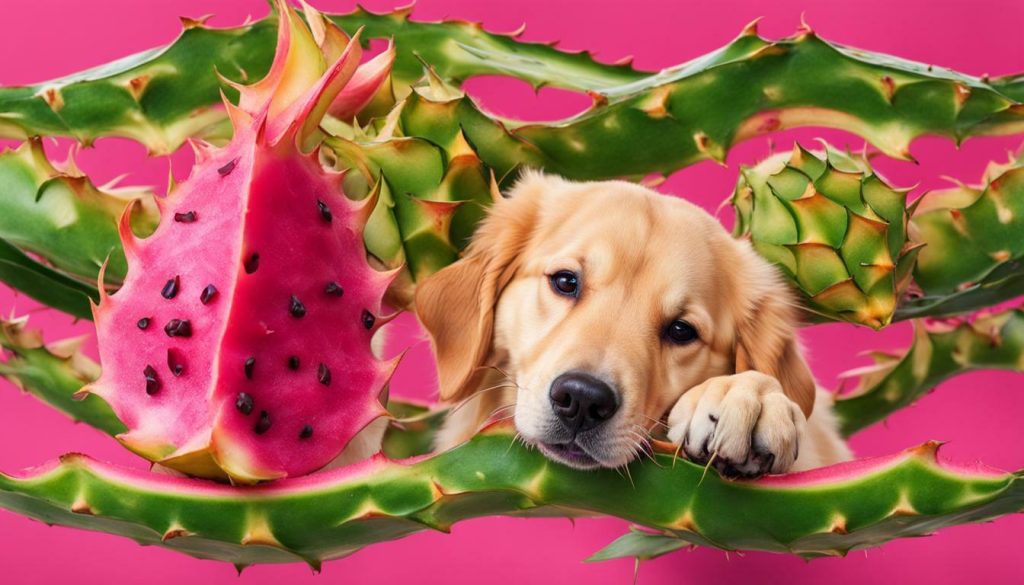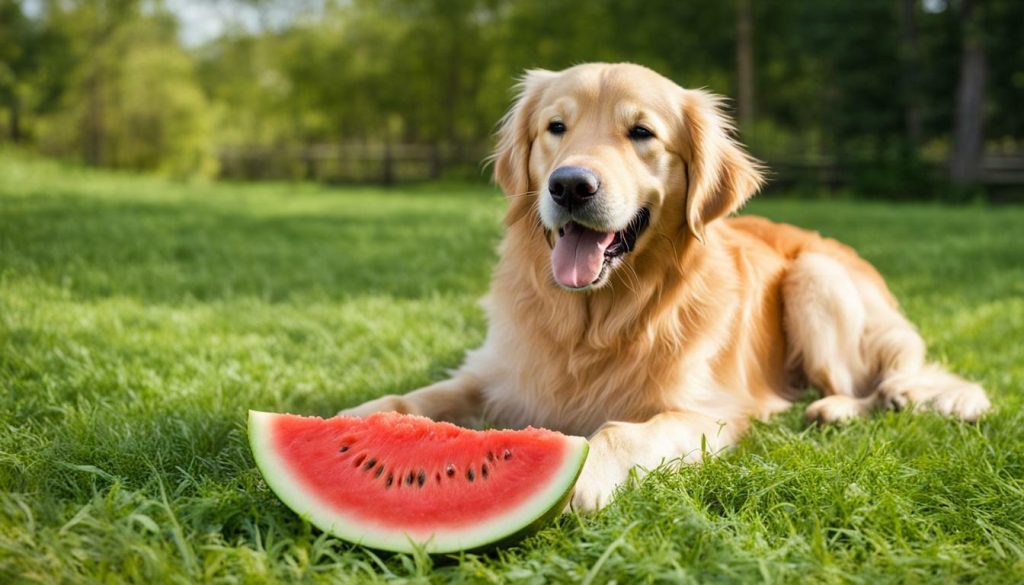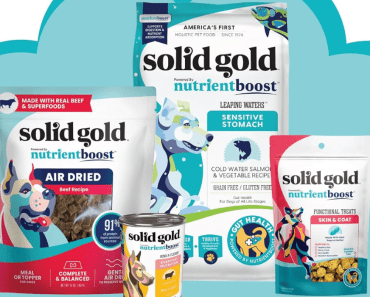
Many pet owners wonder if it is safe to feed dragon fruit to their dogs and what nutritional value this exotic fruit holds for canines. Dragon fruit, also known as Pitaya, is safe for dogs to eat and can provide several health benefits. It is non-toxic for dogs and can be easily digested. The fruit is nutrient dense, making it a good addition to a dog’s vitamin and fiber intake. Yellow dragon fruit, in particular, is recommended for dogs.
Key Takeaways:
- Dragon fruit is safe for dogs to eat and can provide health benefits.
- It is non-toxic for dogs and can be easily digested.
- The fruit is nutrient dense, with vitamins C and B, fiber, and antioxidants.
- Dragon fruit should be served in moderation and skin and seeds should be removed.
- Not all fruits are safe for dogs, so it’s important to do research and consult with a veterinarian.
Is Dragon Fruit Safe for Dogs to Eat?
Dragon fruit is generally considered safe for dogs to eat, but there are some precautions to keep in mind when introducing this fruit into their diet. It is important to start with small amounts and monitor your dog for any adverse reactions. While dragon fruit is non-toxic, dogs with sensitive stomachs or allergies may experience digestive issues or allergic reactions.
When serving dragon fruit to your dog, it is important to remove the skin and seeds before feeding. The skin can be difficult for dogs to digest, and the seeds can pose a choking hazard, especially for smaller dogs. Additionally, the seeds may cause intestinal blockages if ingested. Therefore, it is recommended to only offer the flesh of the fruit to your dog.

While dragon fruit can provide various health benefits, it should be given in moderation as an occasional treat or supplement to a balanced diet. It is important to remember that no single food should make up the entirety of a dog’s diet. Consulting with a veterinarian is always a good idea before introducing any new food into your dog’s diet.
In conclusion, dragon fruit can be a safe and nutritious addition to your dog’s diet when served in small amounts and without the skin and seeds. It is important to monitor your dog for any adverse reactions and consult with a veterinarian if you have any concerns. With proper precautions, dragon fruit can be a healthy and enjoyable treat for your furry friend.
The Health Benefits of Dragon Fruit for Dogs
Dragon fruit is packed with nutrients and can provide several health benefits when included in a dog’s diet. This exotic fruit is not only safe for dogs to eat, but it also offers a range of vitamins, minerals, and antioxidants that can contribute to their overall well-being.
The high vitamin C content in dragon fruit can help boost a dog’s immune system, protecting them from various illnesses and infections. Additionally, the fruit contains vitamin B, which plays a crucial role in maintaining a dog’s healthy metabolism and nervous system.
Furthermore, dragon fruit is a great source of fiber, which can aid in digestion and promote a healthy gut. The fiber content can also help regulate a dog’s bowel movements and prevent constipation.
The antioxidants found in dragon fruit, such as betalains and flavonoids, can reduce inflammation and oxidative stress in dogs. This can contribute to better joint health and may even help prevent certain chronic diseases.

To summarize, incorporating dragon fruit into a dog’s diet can provide numerous health benefits. From immune support and improved digestion to joint health and reduced inflammation, this fruit is a nutritious addition to a dog’s meal plan. Just remember to introduce it in moderation and remove the skin and seeds before serving. Always consult with your veterinarian to ensure it aligns with your dog’s specific dietary needs.
| Key Health Benefits | Supporting Nutrients |
|---|---|
| Boosts immune system | Vitamin C |
| Aids in digestion | Fiber |
| Reduces inflammation | Antioxidants |
Nutritional Value of Dragon Fruit for Dogs
Dragon fruit is rich in vitamins, fiber, and antioxidants, making it a nutritious addition to a dog’s diet. This exotic fruit is packed with essential nutrients that can support your dog’s overall health and well-being.
One cup of dragon fruit contains approximately:
| Nutrient | Amount |
|---|---|
| Vitamin C | 9.4mg |
| Vitamin B1 (Thiamine) | 0.04mg |
| Vitamin B2 (Riboflavin) | 0.04mg |
| Fiber | 1.9g |
| Antioxidants | Powerful antioxidant properties |
These nutrients play a vital role in your dog’s overall health. Vitamin C helps boost the immune system, while B vitamins support energy production and a healthy nervous system. The fiber content aids in digestion and promotes a healthy gastrointestinal tract.
Antioxidants found in dragon fruit help neutralize harmful free radicals and protect cells from damage. They also contribute to a healthy coat and skin in dogs. Adding dragon fruit to your dog’s diet can provide them with a natural source of these beneficial antioxidants.
Remember to introduce dragon fruit slowly into your dog’s diet, starting with small amounts and monitoring for any adverse reactions. Remove the skin and seeds before serving, as these can pose a choking hazard. As with any new food, it’s always best to consult with your veterinarian to ensure it is suitable for your individual dog’s dietary needs.

Risks and Considerations
While generally safe, there are certain risks and considerations to keep in mind when feeding dragon fruit to dogs. It is essential to prioritize your furry friend’s health and well-being by understanding the potential drawbacks and taking necessary precautions.
First and foremost, some dogs may be allergic to dragon fruit or have sensitivities to certain foods. If you notice any signs of an allergic reaction, such as itching, diarrhea, or vomiting, it is crucial to discontinue feeding dragon fruit and consult with your veterinarian.
Furthermore, the seeds in dragon fruit can pose a choking hazard, especially for smaller dogs. To prevent this risk, always remove the seeds before offering the fruit to your canine companion.
Additionally, it is essential to remember that while dragon fruit offers various nutritional benefits, it should not replace a balanced diet specifically tailored to your dog’s needs. The fruit should be given as an occasional treat or supplement, rather than a staple in their daily meals.
To summarize, feeding dragon fruit to dogs can be a safe and enjoyable experience when done with care. By being aware of potential allergies, removing seeds, and incorporating the fruit as part of a well-rounded diet, you can enhance your dog’s health and provide them with a tasty treat.

| Benefits of Dragon Fruit for Dogs: |
|---|
| • High in vitamins C and B |
| • Rich in fiber and antioxidants |
| • Supports a healthy immune system |
| • Promotes a shiny coat |
How to Feed Dragon Fruit to Dogs Safely
It is important to follow certain guidelines to ensure the safe consumption of dragon fruit by dogs. Here are some tips on how to feed dragon fruit to your furry friend:
- Start with small amounts: When introducing dragon fruit to your dog’s diet, begin with small portions to see how they react to the fruit. Monitor for any signs of discomfort or allergies.
- Remove the skin and seeds: Before feeding dragon fruit to your dog, make sure to peel off the skin and remove the seeds. The skin and seeds can be difficult for dogs to digest and may cause digestive issues or blockages, especially in smaller breeds.
- Consider mashing or blending: To make it easier for your dog to consume, you can mash or blend the dragon fruit into a puree-like consistency. This can also help in removing any remaining seeds.
- Offer as an occasional treat: Dragon fruit should not replace your dog’s regular diet. It should be given as an occasional treat or supplement to a balanced diet. Remember to consider the fruit’s sugar content and adjust accordingly based on your dog’s health needs.
Remember, not all fruits are safe for dogs, so it’s always advisable to do your research and consult with a veterinarian before adding any new fruit to your dog’s diet. By following these guidelines, you can safely incorporate dragon fruit into your dog’s nutrition and provide them with a tasty and nutritious treat!

Disclaimer: The information provided in this article is for informational purposes only and does not substitute professional advice. Always consult with a veterinarian before making any changes to your dog’s diet or introducing new foods.
Other Dog-Friendly Fruits
In addition to dragon fruit, there are several other fruits that dogs can safely enjoy as part of their diet. These fruits provide a variety of nutritional benefits and can be a tasty and healthy treat for your furry friend. Here are some dog-friendly fruits to consider:
- Apples: Apples are a great source of vitamins A and C, as well as fiber. Be sure to remove the seeds and core before feeding them to your dog.
- Blueberries: Blueberries are small powerhouses of antioxidants and can be a delicious and nutritious snack for dogs. They are low in calories and high in vitamins and minerals.
- Watermelon: Watermelon is a hydrating fruit that dogs can enjoy during the summer months. It is low in calories and packed with vitamins A and C.
- Pineapple: Pineapple contains enzymes that can aid in digestion and can be a sweet and tangy treat for dogs. However, it should be fed in moderation due to its high sugar content.
Table: Nutritional Content of Dog-Friendly Fruits
| Fruit | Vitamin A | Vitamin C | Fiber (g) |
|---|---|---|---|
| Apples | Yes | Yes | 2.4 |
| Blueberries | No | Yes | 2.4 |
| Watermelon | Yes | Yes | 0.6 |
| Pineapple | Yes | Yes | 2.3 |
“Feeding dogs a variety of fruits can provide them with additional nutrients and add some excitement to their diet.” – Dr. Emily Jones, Veterinarian
It is important to remember that fruits should only be given to dogs in moderation and as a supplement to their regular meals. Always consult with your veterinarian before introducing any new foods into your dog’s diet, especially if they have any underlying health conditions. By incorporating a variety of dog-friendly fruits into their diet, you can provide your furry companion with a balanced and nutritious eating experience.

Please Note: The nutritional content mentioned in the table may vary slightly based on the specific variety and ripeness of the fruit. Always consult with your veterinarian for personalized dietary advice for your dog.
Conclusion
While dogs can safely eat dragon fruit in moderation, it is important to consider their specific dietary needs and consult with a veterinarian before introducing any new fruit into their diet.
Dragon fruit, also known as Pitaya, is a non-toxic fruit that can provide several health benefits for dogs. It is easily digestible and packed with essential nutrients, including vitamins C and B, fiber, and antioxidants. Yellow dragon fruit, in particular, is recommended for dogs.
Adding dragon fruit to a dog’s diet can contribute to their overall health and well-being. The antioxidants found in the fruit can boost their immune system and promote a healthy coat. However, it is crucial to be aware of potential risks and considerations.
Dogs with sensitive stomachs or allergies may have an adverse reaction to dragon fruit. It is important to start with small amounts and monitor for any signs of discomfort or allergies. Additionally, the seeds in the fruit can pose a choking hazard, especially for smaller dogs. Therefore, it is advised to remove the skin and seeds before feeding dragon fruit to dogs.
It is important to remember that not all fruits are safe for dogs. Grapes, raisins, and avocado, for example, should be avoided as they can be toxic to dogs. It is essential to research and seek guidance from a veterinarian before introducing any new fruit into a dog’s diet.
In conclusion, while dragon fruit can be a nutritious and hydrating addition to a dog’s diet, it should not replace a balanced diet tailored to their specific needs. Always prioritize their health and consult with a veterinarian to ensure their dietary requirements are met.
FAQ
Can dogs safely eat dragon fruit?
Yes, dragon fruit is safe for dogs to eat as long as it is served in moderation and prepared correctly.
What are the health benefits of dragon fruit for dogs?
Dragon fruit is nutrient dense and can provide dogs with vitamins, fiber, and antioxidants. It can boost the immune system and promote a healthy coat.
How should I serve dragon fruit to my dog?
Before feeding dragon fruit to your dog, make sure to remove the skin and seeds. Start with small amounts and monitor for any signs of discomfort or allergies.
Are there any risks associated with feeding dragon fruit to dogs?
Dogs with sensitive stomachs or allergies may have an allergic reaction to dragon fruit. Additionally, the seeds can cause a blockage in smaller dogs.
Can dragon fruit replace a balanced diet for dogs?
No, dragon fruit should not replace a balanced diet tailored to a dog’s specific needs. It should be given as an occasional treat or supplement.
What other fruits are safe for dogs to eat?
Some other dog-friendly fruits include apples, blueberries, and watermelon. However, it is important to research and consult with a veterinarian before introducing any new fruit to a dog’s diet.






